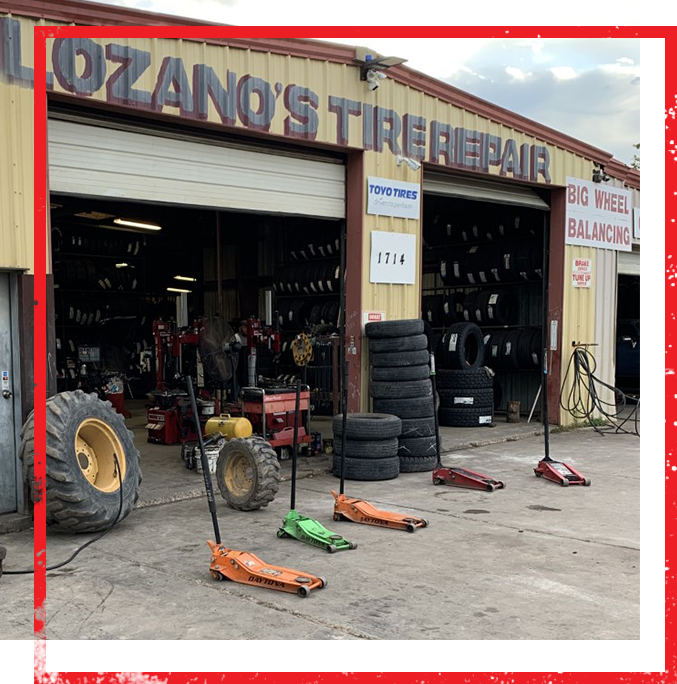Morris Tire Service Excellence: Where Knowledge Meets Your Tire Needs
Morris Tire Service Excellence: Where Knowledge Meets Your Tire Needs
Blog Article
The Ecological Benefits of Correct Tire Upkeep
Maintaining appropriate tire care is frequently neglected, yet its effect on the setting is extensive. Correct tire upkeep not only extends the life-span of tires but also decreases garbage dump waste and contributes to improved air high quality.
Decreased Fuel Consumption
Improving tire maintenance techniques can lead to a considerable reduction in fuel intake for vehicles. According to the United State Division of Energy, underinflated tires can lower gas mileage by 0.2% for every 1 psi decrease in pressure in all 4 tires.
Along with tire pressure, regular tire turnings and placements also play a vital duty in fuel effectiveness. Unevenly used tires can increase fuel consumption as the engine functions harder to maintain speed and grip. By preserving appropriate placement and rotating tires at recommended intervals, drivers can ensure even put on and lengthen the life of their tires, eventually saving gas and reducing their carbon impact.
Extended Tire Life Expectancy
Prolonging the life-span of tires is a key facet of effective lorry maintenance techniques that can yield cost savings and ecological advantages in the long run. By correctly maintaining tires, drivers can considerably prolong their use, decreasing the regularity at which new tires require to be made and old ones taken care of. This not only preserves important resources yet additionally reduces the energy and emissions related to tire manufacturing and disposal processes.
Regularly inspecting tire stress, turning tires, and guaranteeing correct positioning are vital action in expanding tire life expectancy. Ample step deepness is crucial for ideal grip and security, but it likewise plays a duty in for how long tires can be utilized prior to requiring substitute. Furthermore, staying clear of aggressive driving habits that speed up tire wear, such as severe braking and doglegs, can better improve tire longevity.
Ultimately, boosting the longevity of tires with proactive upkeep not only benefits the atmosphere by lowering waste and saving resources yet additionally brings about set you back savings for automobile proprietors by delaying the requirement for brand-new tire purchases.
Lower Discharges Result
Reliable tire maintenance methods add to a reduction in discharges result, straightening with ecological sustainability goals in the automotive sector. Effectively filled with air tires, regularly rotated and lined up, can boost fuel performance, thus decreasing the overall carbon dioxide exhausts from vehicles. When tires are underinflated, the engine needs to function more difficult to move the vehicle, resulting in increased gas intake and greater exhausts. By maintaining optimum tire pressure degrees, motorists can aid mitigate these negative ecological impacts.
In addition, well-kept tires additionally boost traction and minimize rolling resistance, even more enhancing fuel efficiency. This, subsequently, minimizes the amount of exhaust gases launched into the atmosphere. Additionally, making certain tires are appropriately pumped up and lined up can prolong the life expectancy of the tires, lowering the frequency of tire replacements and the associated environmental costs of tire production and disposal.

Decreased Garbage Dump Waste
Offered the here are the findings favorable impact of appropriate tire upkeep on reducing discharges result, one more substantial ecological advantage is the capacity for lowered landfill waste. They wear out faster and need to be replaced much more frequently when tires are not maintained properly. This results in a higher volume of used tires being taken care of in land fills. By guaranteeing that tires are appropriately blown up, straightened, balanced, and turned frequently, their life expectancy can be substantially prolonged. This means that less tires wind up in land fills, decreasing the quantity of non-biodegradable waste in these currently overflowing websites.

Improved Air High Quality
Enhancing air quality through correct tire upkeep practices is a crucial element of sustainable ecological stewardship. When tires are underinflated, they create more rolling resistance, resulting in enhanced Check This Out fuel usage and greater discharges of dangerous pollutants such as carbon monoxide and nitrogen oxides. Properly filled with air tires not just improve gas performance but likewise lower the quantity of toxins released into the air.
Furthermore, well-kept tires with correct step deepness and alignment contribute to much safer driving conditions, minimizing the chance of mishaps that can lead to the release of additional toxins into the environment. By expanding the life-span of tires through regular upkeep and turning, fewer tires are thrown out prematurely, reducing the ecological effect of tire disposal and manufacturing processes.
Conclusion
In final thought, appropriate tire upkeep offers numerous environmental benefits. It is necessary for people to prioritize tire upkeep as a simple yet efficient means to shield the atmosphere for future i thought about this generations.
Proper tire upkeep not just extends the lifespan of tires however also lowers garbage dump waste and adds to enhanced air high quality - morris tire. By keeping proper positioning and rotating tires at suggested periods, vehicle drivers can make certain also extend the life and use of their tires, inevitably conserving fuel and minimizing their carbon footprint
By properly preserving tires, motorists can dramatically extend their use, minimizing the regularity at which new tires require to be manufactured and old ones disposed of.Routinely inspecting tire stress, rotating tires, and making sure appropriate alignment are necessary actions in prolonging tire life expectancy. Furthermore, making sure tires are correctly blown up and aligned can expand the life expectancy of the tires, decreasing the frequency of tire substitutes and the linked ecological prices of tire production and disposal.
Report this page